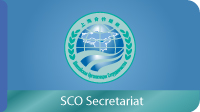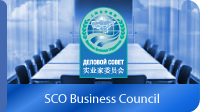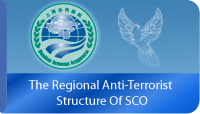|
|
 |
| After the decade of SCO: new epoque, which demands new policy |
| 23.12.2011 12:50 |
Dmitrij Kosyrev,political contributor of RIANOVOSTI, especially for InfoSCO |
|
|
|
The worst service to provide for citizens of SCO member countries today is to ply the Organization with panegyrics on its anniversary and hope that inertia of its achievements still be sufficient for some years. Will not be. Inversely, the inertia will destroy all previous achievements of the constructors of SCO and can make the Organization a dummy at its best.
The example is vivid: the G8. This is nothing but a decoration because decisions on key issues are made generally on finance but this limitation is not perpetual and has moved into “extended G8”, the G20. Still G8 continues its summits and… actively looking for a job. There is no more prestigious club of main global powers. No one will notice if G8 will cancel its meetings effective this year.
Yes, this could also happen to SCO due to the simple reason of what was good yesterday no longer adequate today.
Character of threats
In autumn of 2011 I had to participate in case studies taken by a group of Russian experts on Central Asia. Their results has been taken a basis of documents prepared by the customer, one of Russian “brains trusts” and that is why I cannot give a detailed description of the meeting or quote presentations of its participants. I can give only a general outcome.
The question was: What is main threat for Russia in Central Asia in the new upcoming situation when US and NATO troops will basically leave Afghanistan in 2014 or sooner or later and in worst case the power there will be taken by the Taliban?
The list of answers was generally clear. Armored sorties of Taliban across the northern frontier of Afghanistan, more intense drug trafficking through territories of Kazakhstan and Russia and many other. However, the participants were required to highlight the “main” threat and countermeasures to it while making the rating of the rest. One may expect variety of opinions and disputes.
By contrast, there were no disputes. Conclusion of the experts was somehow wonderful and even unanimous. Ongoing degradation and “jihadization” of population of certain territories of Central Asia has been named as the main threat to Russian interests. Essentially it is a turning of the entire region from Indian to Russian borders into one big “Taliban Stan”. In this case all other threats turned out to be derivatives of this main threat. Among them are creeping seizure of local and central power, drugs and many other.
Moreover, with this approach it is obvious that military countermeasures are ill-suited. One thing is to locate and destroy a gang of strangers, which has not general support of local people and the other is when there is no necessity in a gang, when with absence of Taliban certain areas like Fergana valley, south of Kirgizstan and certain regions of Tajikistan are difficult to differentiate from known areas of Afghan-Pakistan border by ideas and customs of the population.
Experts think that this is what happening. Reserves of former Soviet cultural influence, which created secular society and political systems and Russian speaking educational and scientific elite in Central Asia, are almost depleted. These elite will be replaced not by westernminded powers but by a local variant of Taliban. This is slow but unstoppable process. Occurrence of power vacuum in Afghanistan with prospect of taking power by some kind of the Taliban can speed up the process but not greater than.
The situation has changed
Today, reviewing the decade of SCO history one can understand that the Organization had an inexpressible luck. All countries dealing with Central Asian affairs like SCO member states and observer states had during that period two joining factors. First of all, it was a demand to establish from the ground a system of international relations in the region of former Soviet-Chinese border. This means to have a permanent mechanism of negotiations to solve all issues as a minimum. More over, SCO founding members were united by the common threat like “jihadizm» of Taliban Afghanistan.
Further on, on the stage of shaping of SCO as an organization an unexpected happened – occupation of Afghanistan by US and NATO troops. However, this surprise party did not basically changed the situation. In principle, it meant the same. Borders of Afghanistan with slightly different problems than before.
Of course, one may say: the outside enemy has changed but in any case we need to draw the line in front of it and will not recommend him to cross it. The other thing that George W. Bush administration had no necessity to fall into a state of such an “enemy”. It was just a mistake too attempt to combine two incompatible policies: a war inside the Afghanistan and policy for replacing of Central Asian governments for more pro-American. As a result, both US policies are failed.
In any case, first decade of SCO was successful due to Taliban threat was negated temporary as we see now by foreign military presence in Afghanistan. It is historical luck. Which will end soon.
Today expert community is having a clash of opinions on whether USA is really «leaving» Afghanistan or is it a some complex trick and in fact «Americans are not leaving and from nowhere” (otherwise why making preparations for establishing American military bases in the region).
I would like to notice that first of all they are leaving and how! One example will do. The war in Indochina with huge American military bases in Thailand and on Philippines let alone South Vietnam. Although it happened during one and half decades, leaving from there is an obvious fact.
Second, if we assume that US democratic administration will stay in the office or the Republicans will continue the policy in case of their victory on 2012 elections, than gradual American withdrawal from “Great Middle East” will happen. This is not least because Obama’s administration focuses its efforts on completely another region, the Eastern Asia returning to some extent to the situation of period of Indochina war. “Deterrence” of the only US serious global competitor, i.e. China, is logical. We well not say whether it is “good” or “bad”.
Let us see will this policy be implemented on the northwestern borders of China i.e. in the area of SCO. So far it seems that USA will not have enough resources for it. Thus, with teethe withdrawal of USA and West in general from Central Asia and Great Middle East in general, the SCO countries are facing the completely new situation. Let us repeat that its worst factor is in creeping “talibanization” of region’s population. Consequently, appearance of a new situation demands new policy.
What is “common space”?
A Russian concept, which was developed in 1990s and actively promoted in early 2000s, which explained what kind of relations with the European Union Russia is strives for. The concept has been very well formulated and assumed not integration with EC, which was impossible long before current disturbances threatening to collapse the EC but establishment of “common areas” of European countries and Russia.
There should be three of them. Common area in security, economy and in humanitarian sphere. Strictly speaking, even now Moscow builds the same structure in its relations with EC irrespectively how it is called.
Let us underline this: unlike governed by a mass of regulations existence of EC, where establishment of some supernational (first of all, financial ones) structures is more and more frequently on agenda, Russia offers to maintain maximum autonomy in relations with the EC. “Common areas” mean anything but subordination of Moscow before European Union and not vise versa.
Can one believe that «project of SCO» means establishment of «common areas” for all its participants?
The answer to this question is a complicated one. Actually, there is a movement to this direction. First of all, in the field of security and up till now such “space” can be considered as a principle merit of SCO before its peoples. The other matter, and that was mentioned above, not every security can be provided by military measures.
Economic “common space” within the framework of SCO is also taking shape very slowly for its members with disputes and poorly masked competitive fights. Here we can differentiate two tangles of contradictions. First one is a barely visible but increasing competition between two key powers of SCO, Russia and China. I think that we need to clarify this issue: what kind of phenomenon do we have here? Are these illusions of certain part of Russian bureaucracy or actual conflict of interests on, for example, contracting of Turkmen or Kazakh natural gas? Finally, how to teach both our countries-partners in SCO not to compete but establish joint projects in this region as well as in others?
The second tangle of economic problems inside SCO is a heritage of 1990s when poorly familiar with economic and history of global recessions administrators seemed that answer to the hardships is economic autarchy and closedness. Until now it is not a competition but senseless dislike of Central Asian countries to each other that creates virtually every problem within SCO.
However, up till now there was the third common humanitarian space within SCO. It was not created it was. It penetrated societies of Central Asian countries form top to bottom excluding totally undeveloped periphery. Everybody knew Russian language and everybody take classes in secondary or al least elementary schools, which were essentially based on Soviet system of education. With certain limitations, which were present even in Soviet period but there was common space for cinema, literature and music. By the way as well as in medicine, this is not trivialism at all. Nobody even noticed such unity it seemed a normal state of things.
I would like to propose that just at that spots the key efforts of SCO must be focused. Including the reason that security measures in the region have already established a system, which will stay for some time waiting for the humanitarian sphere to catch up. That is because the success of economic cooperation nowadays more and more clearly relies upon the humanitarian unity of the most diverse countries.
However, many other and unusual problems are rising.
What is common humanitarian space?
It is known that if one needs reports, the experienced bureaucracy can provide them as many as one wishes. Including ones on humanitarian area of work within the SCO. There are meetings of Ministers of culture and education of SCO countries that adopt decent looking programs. There is a virtual (yet) SCO University, which always tops the list of achievements of the organization in this field. By the way, results of talks with people responsible for issues of SCO University largely contributed ino into the critical mood of my notes and the notes themselves. This is because the beginning of a new practical activities quite often results in revealing of old, hidden problems in addition to the new ones.
At this point many questions of complicated nature are rising. I think that the beginning of serious work in this field is in simple listing of such questions.
China: what is its role in “humanitarian construction” of SCO? This is not a simple question as one might think. Russian people may think that principle objective of our humanitarian policy in Central Asia is merely a restoration and rebirth of what was this field in Soviet period except communist ideology. Only “Chinese component” in SCO cures this very quickly.
We can consider the stage of irrational nationalism as passed when each country of former Soviet Union in one or another degree tried to expel Soviet (Russian) cultural influence by making of new national culture instead, making a kind of colonial emancipation. Today it is easy to notice that one does not obstruct the other like for the former members of British Empire the English language is not a language of oppressors but a door to the world, to education and career opportunities. The most reasonable example of it is an educational policy of Kazakhstan where the abovementioned English language as well as Russian and other languages are encouraged.
But Chinese is a interesting and somewhat different phenomenon. First of all, there is no doubt that if Russian culture is “friendly” and traditional for Central Asia when Chinese one is absolutely new and “foreign”.
At the same time, it is a language and culture of tomorrow because they belong to the second and future first largest economy in the world. Currently up to 100 million people in the world are studying Chinese and not because of curiosity but due to the practical reasons. However, how the “Chinese component” of humanitarian space of SCO should look like without taking into account the fact that along with Russian the Chinese language is a working language of the Organization? (Let alone the fact that after inevitable joining of India and Pakistan into SCO there will be English language but this only refers to activities of organization’s bureaucracy).
Would be here some competition between Russian and Chinese components of such cultural space? If so then who will win? In general it is easy to understand that will issue, which was not thoroughly discussed within SCO except several meetings of experts, will be seriously discussed in the time to come. For now, each party just proposes what it has and then the issue goes in an unorganized manner.
What will be if Russia in its political development will make another familiar “oscillation of the pendulum” towards pro-West orientation? We observe rather turbulent political processes in large cities of Russia and not only fate of SCO may fall a victim of which (in the end it is only an organization) but fates of peoples of Central Asia and, finally national existence of Russia. Even China may suffer significant losses.
Judging by my observations Russian liberalism and “Westernism” are always fruits of lack of information if not to say ignorance of certain part of Russian educated elite. One way or the other there is a possibility for pro-Western powers to come to power in Russia even for short term. Ridiculous even in 1990s idea of “returning of Russia into family of civilized peoples” is flickering on the rallies of Bolotnaja square and in speeches of the rivals of current regime in Russia. We have to foresee certain measures on this direction, which could help Central Asia and China to mitigate the cultural losses from such turn of events.
Of course, the greatest losses will suffer Russia itself. Totally devoid of “oriental” policy, it will face the threat for its existence. We have seen signs of such a turn in the early 1990s and they were catastrophic but we must expect recurrence of such policy though economic and other reality will wash it out very quickly.
However, in any case we cannot avoid necessity for all members of SCO to discuss openly and in public and not only on academic level of principle issues of our existence like issues of East and West, civilization values and many other. This is far more complicated than an attempt to get rig of “Soviet heritage”. Ultimately, this is a key issue of region’s survival: if not values of religious extremists then what?
Who and how could make use of such factor as labor immigration from Central Asia, which aims not only for Russia but into Kazakhstan and China as well? This quite a practical question. This is because if we are talking on humanitarian cooperation then its lower, basic ground is a school education of children. That is where the mutual support of partners in SCO should be tangible. However, the obstacle lies in political sensibility of this issue because still there is an opinion that school curricula is a matter of purely national policy.
However, it is quite a different story when hundreds of thousands people from Central Asia are working and living with their families in the largest cities of Russia. Yes, of course it facilitates reproduction of educated Russian speaking generation, which as was said before begin to diminish at home. The other question is which part of this generation will return home. But Russian authorities do it reflectory and merely because for immigrants they have nothing but ordinary schools. Let us now imagine more reasonable policy on this issue assuming among other things training of staff for Central Asia in Russian schools due to the fact that it is already happens and many more. Apparently, the life itself will make study this issue very thoroughly.
There is no doubt that key directions of work of entire SCO for the nearest future will be working out of clear answers for these and many other questions.
|
|
* Реестр иностранных средств массовой информации, выполняющих функции иностранного агента:
Голос Америки, Idel.Реалии, Кавказ.Реалии, Крым.Реалии, Телеканал Настоящее Время, Azatliq Radiosi, PCE/PC, Сибирь.Реалии, Фактограф, Север.Реалии, Радио Свобода, MEDIUM-ORIENT, Пономарев Лев Александрович, Савицкая Людмила Алексеевна, Маркелов Сергей Евгеньевич, Камалягин Денис Николаевич, Апахончич Дарья Александровна, Medusa Project, Первое антикоррупционное СМИ, VTimes.io, Баданин Роман Сергеевич, Гликин Максим Александрович, Маняхин Петр Борисович, Ярош Юлия Петровна, Чуракова Ольга Владимировна, Железнова Мария Михайловна, Лукьянова Юлия Сергеевна, Маетная Елизавета Витальевна, The Insider SIA, Рубин Михаил Аркадьевич, Гройсман Софья Романовна, Рождественский Илья Дмитриевич, Апухтина Юлия Владимировна, Постернак Алексей Евгеньевич, Общество с ограниченной ответственностью Телеканал Дождь, Петров Степан Юрьевич, Istories fonds, Шмагун Олеся Валентиновна, Мароховская Алеся Алексеевна, Долинина Ирина Николаевна, Шлейнов Роман Юрьевич, Анин Роман Александрович, Великовский Дмитрий Александрович, Альтаир 2021, Ромашки монолит, Главный редактор 2021, Вега 2021
* Сведения реестра НКО, выполняющих функции иностранного агента:
Фонд защиты прав граждан Штаб, Институт права и публичной политики, Лаборатория социальных наук, Фонд по борьбе с коррупцией, Альянс врачей, НАСИЛИЮ.НЕТ, Мы против СПИДа, Фонд защиты прав граждан, СВЕЧА, Гуманитарное действие, Открытый Петербург, Феникс ПЛЮС, Лига Избирателей, Правовая инициатива, Гражданская инициатива против экологической преступности, Фонд борьбы с коррупцией, Гражданский Союз, Российский Красный Крест, Центр Хасдей Ерушалаим, Центр поддержки и содействия развитию средств массовой информации, Горячая Линия, В защиту прав заключенных, Институт глобализации и социальных движений, Центр социально-информационных инициатив Действие, ВМЕСТЕ, Благотворительный фонд охраны здоровья и защиты прав граждан, Благотворительный фонд помощи осужденным и их семьям, Фонд Тольятти, Новое время, Серебряная тайга, Так-Так-Так, центр Сова, центр Анна, Проект Апрель, Самарская губерния, Эра здоровья, правозащитное общество Мемориал, Аналитический Центр Юрия Левады, Издательство Парк Гагарина, Фонд имени Андрея Рылькова, Сфера, Центр защиты СИБАЛЬТ, Уральская правозащитная группа, Женщины Евразии, Рязанский Мемориал, Екатеринбургское общество МЕМОРИАЛ, Институт прав человека, Фонд защиты гласности, Российский исследовательский центр по правам человека, Дальневосточный центр развития гражданских инициатив и социального партнерства, Пермский региональный правозащитный центр, Гражданское действие, Центр независимых социологических исследований, Сутяжник, АКАДЕМИЯ ПО ПРАВАМ ЧЕЛОВЕКА, Частное учреждение Совета Министров северных стран, Центр развития некоммерческих организаций, Гражданское содействие, Центр Трансперенси Интернешнл-Р, Центр Защиты Прав Средств Массовой Информации, Институт развития прессы - Сибирь, Фонд поддержки свободы прессы, Гражданский контроль, Человек и Закон, Общественная комиссия по сохранению наследия академика Сахарова, Информационное агентство МЕМО. РУ, Институт региональной прессы, Институт Развития Свободы Информации, Экозащита!-Женсовет, Общественный вердикт, Евразийская антимонопольная ассоциация, Чанышева Лилия Айратовна, Сидорович Ольга Борисовна, Таранова Юлия Николаевна, Туровский Александр Алексеевич, Васильева Анастасия Евгеньевна, Ривина Анна Валерьевна, Бурдина Юлия Владимировна, Бойко Анатолий Николаевич, Гусева Ольга Андреевна, Дугин Сергей Георгиевич, Пивоваров Андрей Сергеевич, Писемский Евгений Александрович, Аверин Виталий Евгеньевич, Барахоев Магомед Бекханович, Шевченко Дмитрий Александрович, Жданов Иван Юрьевич, Рубанов Роман Викторович, Шарипков Олег Викторович, Мальсагов Муса Асланович, Мошель Ирина Ароновна, Шведов Григорий Сергеевич, Пономарев Лев Александрович, Каргалицкий Борис Юльевич, Созаев Валерий Валерьевич, Исакова Ирина Александровна, Исламов Тимур Рифгатович, Романова Ольга Евгеньевна, Щаров Сергей Алексадрович, Цирульников Борис Альбертович, Халидова Марина Владимировна, Людевиг Марина Зариевна, Федотова Галина Анатольевна, Паутов Юрий Анатольевич, Верховский Александр Маркович, Пислакова-Паркер Марина Петровна, Кочеткова Татьяна Владимировна, Чуркина Наталья Валерьевна, Акимова Татьяна Николаевна, Золотарева Екатерина Александровна, Рачинский Ян Збигневич, Жемкова Елена Борисовна, Гудков Лев Дмитриевич, Илларионова Юлия Юрьевна, Саранг Анна Васильевна, Захарова Светлана Сергеевна, Аверин Владимир Анатольевич, Щур Татьяна Михайловна, Щур Николай Алексеевич, Блинушов Андрей Юрьевич, Мосин Алексей Геннадьевич, Гефтер Валентин Михайлович, Симонов Алексей Кириллович, Флиге Ирина Анатольевна, Мельникова Валентина Дмитриевна, Вититинова Елена Владимировна, Баженова Светлана Куприяновна, Исаев Сергей Владимирович, Максимов Сергей Владимирович, Беляев Сергей Иванович, Голубева Елена Николаевна, Ганнушкина Светлана Алексеевна, Закс Елена Владимировна, Буртина Елена Юрьевна, Гендель Людмила Залмановна, Кокорина Екатерина Алексеевна, Шуманов Илья Вячеславович, Арапова Галина Юрьевна, Пастухова Анна Яковлевна, Прохоров Вадим Юрьевич, Шахова Елена Владимировна, Подузов Сергей Васильевич, Протасова Ирина Вячеславовна, Литинский Леонид Борисович, Лукашевский Сергей Маркович, Бахмин Вячеслав Иванович, Шабад Анатолий Ефимович, Сухих Дарья Николаевна, Орлов Олег Петрович, Добровольская Анна Дмитриевна, Королева Александра Евгеньевна, Смирнов Владимир Александрович, Вицин Сергей Ефимович, Золотухин Борис Андреевич, Левинсон Лев Семенович, Локшина Татьяна Иосифовна, Орлов Олег Петрович, Полякова Мара Федоровна, Резник Генри Маркович, Захаров Герман Константинович
* Единый федеральный список организаций, в том числе иностранных и международных организаций, признанных в соответствии с законодательством Российской Федерации террористическими:
Высший военный Маджлисуль Шура, Конгресс народов Ичкерии и Дагестана, Аль-Каида, Асбат аль-Ансар, Священная война, Исламская группа, Братья-мусульмане, Партия исламского освобождения, Лашкар-И-Тайба, Исламская группа, Движение Талибан, Исламская партия Туркестана, Общество социальных реформ, Общество возрождения исламского наследия, Дом двух святых, Джунд аш-Шам, Исламский джихад, Аль-Каида, Имарат Кавказ, АБТО, Правый сектор, Исламское государство, Джабха аль-Нусра ли-Ахль аш-Шам, Народное ополчение имени К. Минина и Д. Пожарского, Аджр от Аллаха Субхану уа Тагьаля SHAM, АУМ Синрике, Муджахеды джамаата Ат-Тавхида Валь-Джихад, Чистопольский Джамаат, Рохнамо ба суи давлати исломи, Террористическое сообщество Сеть, Катиба Таухид валь-Джихад, Хайят Тахрир аш-Шам, Ахлю Сунна Валь Джамаа
* Перечень общественных объединений и религиозных организаций в отношении которых судом принято вступившее в законную силу решение о ликвидации или запрете деятельности:
Национал-большевистская партия, ВЕК РА, Рада земли Кубанской Духовно Родовой Державы Русь, Асгардская Славянская Община Асгардской Веси Беловодья, Славянская Община Капища Веды Перуна, Мужская Духовная Семинария Староверов-Инглингов, Нурджулар, К Богодержавию, Таблиги Джамаат, Русское национальное единство, Национал-социалистическое общество, Джамаат мувахидов, Объединенный Вилайат Кабарды, Балкарии и Карачая, Союз славян, Ат-Такфир Валь-Хиджра, Пит Буль, Национал-социалистическая рабочая партия России, Славянский союз, Формат-18, Благородный Орден Дьявола, Армия воли народа, Национальная Социалистическая Инициатива города Череповца, Духовно-Родовая Держава Русь, Русское национальное единство, Древнерусской Инглистической церкви Православных Староверов-Инглингов, Русский общенациональный союз, Движение против нелегальной иммиграции, Кровь и Честь, О свободе совести и о религиозных объединениях, Омская организация Русское национальное единство, Северное Братство, Клуб Болельщиков Футбольного Клуба Динамо, Файзрахманисты, Мусульманская религиозная организация п. Боровский, Община Коренного Русского народа Щелковского района, Правый сектор, Украинская национальная ассамблея, Украинская повстанческая армия, Тризуб им. Степана Бандеры, Украинская организация «Братство», Свидетели Иеговы, О противодействии экстремистской деятельности, РЕВТАТПОД, Артподготовка, Штольц, В честь иконы Божией Матери Державная, Сектор 16, Независимость, Организация футбольных болельщиков «Фирма», Молодежная правозащитная группа МПГ, Курсом Правды и Единения, Каракольская инициативная группа, Автоград Крю, Союз Славянских Сил Руси, Алля-Аят, Благотворительный пансионат Ак Умут, Русская республика Русь, Арестантское уголовное единство, Башкорт, Нация и свобода, W.H.С., Фалунь Дафа, Иртыш Ultras, Русский Патриотический клуб-Новокузнецк/РПК, Сибирский державный союз, Фонд борьбы с коррупцией, Фонд защиты прав граждан, Штабы Навального
|






















Leave a comment